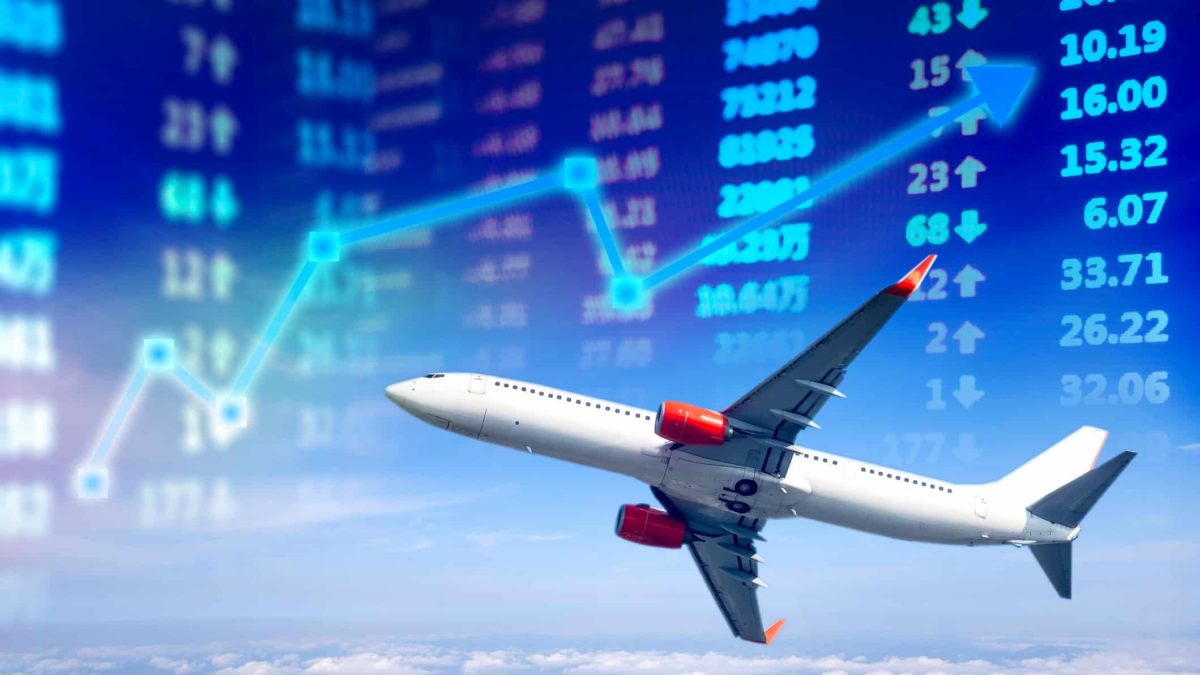Despite some relaxation of coronavirus restrictions, travel remains largely off the cards. This is impacting the ASX travel shares, which have seen mixed recoveries since the market meltdown in March.
Borders were closed in late March in an effort to combat coronavirus. According to the Australian Bureau of Statistics (ABS), overseas arrivals in March fell 60%, with just 331,900 short term visitors arriving in Australia. Overseas arrivals to Australia collapsed in April following the border closures, with ABS data revealing that overseas visitors decreased 99.3% to just 2,200 trips (compared to March). The Australian tourism industry, which was already hurting from the summer bushfires, began to sustain heavy economic damage.
ASX travel shares fell out of favour with investors in late February as the scope of the pandemic became clearer. While there is hope Australians will be able to travel between states in the coming weeks, international travel may be off the cards until next year. Some estimate it may take up to 3 years for international travel to return to pre-COVID levels.
With this in mind, we take a look at how the ASX travel shares are travelling.
Corporate Travel Management Ltd (ASX: CTD)
The Corporate Travel Management share price has bounced over 160% from its March low, but remains 44% down from its 2020 high. The travel agent is one of the few that has not yet raised capital to shore up the liquidity.
Corporate Travel benefits from its business model in which a high proportion of costs are variable. With a small physical footprint, the business saves on rent with about 70% of costs people-related. This enabled a swift resizing of the business.
When the crisis hit, Corporate Travel Management embarked on a comprehensive cost reduction program. The company's cost base has been reduced to $10–$12 million a month, down from $27–$27 million a month. This has been achieved through a combination of retrenchment, temporary stand downs, government initiatives such as JobKeeper, the elimination of non-essential expenditure and reduced capex.
Domestic travel restrictions are likely to ease prior to international restrictions. This will benefit Corporate Travel, which is leveraged to the domestic market – about 60% of its total transaction volumes are domestic in nature. Domestic activity is highly profitable for Corporate Travel, particularly in Australia/New Zealand and Europe.
Corporate Travel Management is positioning itself for a domestic recovery. It says it has the ability to operate a high performing domestic only business with a reduced cost base until international recovers. Staff capacity in each region is ready to be deployed back to full time as required.
Flight Centre Travel Group Ltd (ASX: FLT)
The Flight Centre share price is up 55% from its March low but remains down 65% from 2020 highs. The travel operator closed stores and raised emergency funds in the wake of the pandemic. It raised $700 million in equity to provide liquidity during the coronavirus crisis.
Flight Centre is aiming to reduce its cost base to $65 million per month by the end of July 2020. Prior to COVID-19, the cost base was around $226 million a month. CEO Graham Turner says the equity raising and cost saving initiatives will enable Flight Centre to trade through the current period of global disruption to the travel industry.
To reduce costs by 70%, Flight Centre is closing half its stores and reducing its workforce. The cost saving measures will themselves cost the company $210 million in redundancies, lease breakages and the like.
Travel shutdowns meant Flight Centre's total transaction value fell to a low of 20% of normal levels in March. Uncertainty around how long travel restrictions will remain in place means Flight Centre will want a buffer of funds to protect its business in the interim.
The equity raising and additional funding lines give Flight Centre around $1.6 billion in additional liquidity. This should fund the company well into 2021 with minimal revenues before a significant uplift in business will be required.
Qantas Airways Limited (ASX: QAN)
The Qantas share price has risen 107% from its March low but remains nearly 40% down from its earlier highs. The airline has extended flight cancellations from May through to the end of July. Capacity can be added back if domestic and Trans-Tasman restrictions ease.
Qantas raised $1.05 billion in debt funding secured against seven Boeing 787-9s in March. It has now secured an additional $550 million in funding secured against three wholly owned 787-9s. Net debt is $5.8 billion, which is in the middle of the airline's target range. Qantas has no financial covenants on its debt facilities and no significant debt maturities until June 2021.
Qantas says it has sufficient liquidity to respond to a range of recovery scenarios, including where conditions persist until December 2021. It also has $2.7 billion in unencumbered aircraft assets and can raise funds against these if required.
Qantas acted quickly to slow cash burn early in the crisis. This was achieved through employee stand downs, revised agreements with suppliers, and pauses on virtually all capital and operating expenditures based on current conditions, Qantas expects to reach a net cash burn rate of $40 million per week by the end of June 2020.
The airline is currently operating around 5% of its pre-crisis domestic passenger network and 1% of its international network.
Regional Express Holdings Ltd (ASX: REX)
Regional Express Holdings shares are trading on par with levels pre-coronavirus. Shares in the airline operator were boosted by speculation it could start flying between capital cities. This would see Regional Express compete with Qantas and Virgin Australia.
Regional Express said it is considering the feasibility of commencing domestic airline operations. This would involve flying between capital cities and not just to them. The airline has been approached by several parties interested in providing the equity needed for it to start regional operations in Australia.
The airline estimates it would need $200 million to expand its operations. According to the Australian Financial Review (AFR), the business plan would involve leasing 10 narrow-bodied jets. With airlines globally struggling due to the travel downturn, Regional Express should be able to access aircraft at distressed prices.
With a sufficient capital injection, the Regional Express board believes, "there is a confluence of circumstances which render the start of domestic operations by Rex to be a particularly compelling proposition." If the board decides to proceed with the expansion, domestic operations are expected to commence on 1 March 2021.









